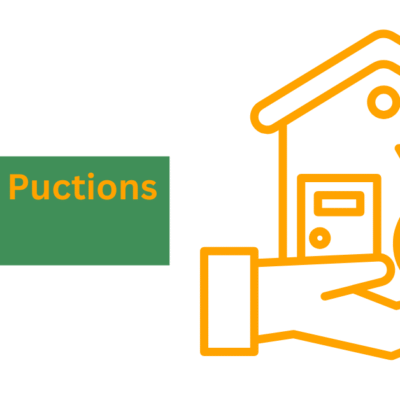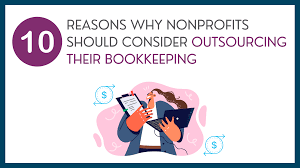Introduction
Ever dreamt of launching your own IT service business in the glittering skyline of Dubai? I sure have, and trust me, the city’s energy injects a serious adrenaline rush into any tech venture. When I first asked myself, how to start IT services business Dubai, I felt equal parts excitement and overwhelm. Who wouldn’t be a bit daunted by the notion of securing a professional license for IT in Dubai, decoding the labyrinth of regulations, and figuring out the budget without losing your mind? FYI, I’ve been there—late nights, endless Google searches, and at least one cup of coffee that I’m convinced had more code in it than caffeine. But here’s the kicker: once you break the whole adventure into bite-sized steps, you’ll realize it feels more like solving a fun puzzle than battling red tape. So, stick around—I’m about to walk you through every twist and turn, from Dubai DED IT license process quirks to choosing between mainland and free zone, and even sharing some of my personal “oops” moments so you don’t repeat them. Ready? Let’s dive in with a grin 😄
Why Dubai’s IT Landscape Rocks
Dubai isn’t just a desert mirage or a vacation hotspot—it’s a legitimately fertile ground for tech startups and IT service firms. Ever wondered why global giants like Microsoft and IBM have regional hubs in the UAE? It’s simple: Dubai Internet City IT license perks, world-class infrastructure, and a relentless drive toward innovation. I remember walking through Dubai Internet City for the first time—gleaming towers, buzzing cafés, and techies from every corner of the globe trading ideas like they were digital collectibles. It felt like being inside the motherboard of the future.
But beyond the futuristic vibe, the government actively supports entrepreneurs. You get access to:
- Networking opportunities: Events and meetups that connect you with investors and seasoned professionals.
- State-of-the-art facilities: Co-working spaces and data centers ready to host your infrastructure.
- Regulatory clarity: Clear guidelines on requirements for IT license Dubai so you’re never left guessing.
I’d argue that Dubai’s strategic location between Europe, Asia, and Africa gives you a time-zone edge, too. Imagine closing deals in California in the morning and onboarding clients in India by afternoon—no jet lag required! And if you ever wonder whether you need fancy Arabic legal terms memorized—spoiler: you don’t. The Dubai DED IT license process runs primarily in English, so you can focus on coding, selling, and scaling rather than deciphering archaic legalese. Ready to sketch out your own Dubai-based IT dream? Keep reading—I’ve got the blueprint nailed down to a tee.
Professional License Types: Mainland vs Free Zone
Choosing between Dubai free zone vs mainland IT license feels like debating between coffee or tea—both will jolt you awake, but each has a distinct flavor and audience. Here’s the skinny:
- Mainland License
- Operate anywhere in the UAE market without restriction.
- You’ll work under the Department of Economic Development (DED).
- You need a local sponsor holding 51% of shares—though recent reforms let you retain full control in many IT service categories.
- Free Zone License
- 100% foreign ownership guaranteed—ideal if you hate partnership drama.
- Zero corporate and personal taxes.
- You’re restricted to operating inside your chosen free zone, though cross-free-zone agreements are evolving.
IMO, if your business model revolves around selling to local UAE clients, the IT company formation Dubai mainland route offers broader market access. But if you’re building a remote or export-focused service—think cloud solutions sold globally—a free zone like Dubai Internet City can simplify ownership and tax matters. Remember, no option is a dead-end; you can always add a branch in the other zone later. But trust me, clarifying your core market early on saves countless headaches down the line. So, which flavor suits your appetite: mainland’s open-ecosystem buffet or free-zone’s exclusive VIP lounge?
Step-by-Step: Registering Your IT Business in Dubai
Okay, let’s get our hands dirty with the actual steps to register IT business in Dubai. Spoiler: it’s not rocket science—more like a methodical assembly line. Here’s the streamlined process I followed (and tweaked after one minor fiasco involving the wrong company name):
- Business Activity Selection
- Pin down your exact IT services—software development, network management, cybersecurity, etc.
- Match with DED’s activity list to avoid last-minute hiccups.
- Legal Structure & Name Reservation
- Choose your legal form (LLC, sole proprietor, etc.).
- Reserve your company name via the DED portal—avoid generic names or trademark conflicts.
- Initial Approval
- Submit passport copies, NOC (if applicable), and your proposed trade name.
- Receive the initial approval receipt—this means you’re halfway there.
- Local Shareholder Agreement (for Mainland)
- Draft and notarize your Memorandum of Association (MOA) with your local sponsor or service agent.
- Office Space Lease
- Secure a physical office—DED demands a valid Ejari lease agreement (even for small service offices).
- Free zones have flexible flexi-desk or hot desk options if you’re bootstrapping.
- Final Submission & Payment
- Submit all documents to DED or your chosen free zone authority.
- Pay license issuance fees—watch out for hidden charges like typing fees or approval attestations.
And voilà—within days (sometimes weeks), you’ll have that coveted professional license for IT in Dubai in your hands. Keep copies on hand, upload them to your cloud drive, and maybe even frame one for motivation. If you hit a snag, breathe, double-check form numbers, and remember: every bureaucratic loop is a rite of passage in the entrepreneurial journey.
Must-Have Requirements for Your IT License
Let’s talk requirements for IT license Dubai in a bit more detail—no one likes surprises when the paperwork lands on your desk. Based on my personal checklist, you’ll need:
- Valid passport copies and visa status for partners/directors.
- NOC from current sponsor (if you hold an existing UAE visa).
- Memorandum of Association (MOA) or Local Service Agent agreement.
- Office lease agreement (Ejari-registered).
- Technical qualification certificates for key personnel.
- Proof of bank account opening in the UAE (some free zones handle this step for you).
I once underestimated the need for a technical certificate, thinking “Hey, I’ve got a decade of coding experience—surely that counts!” Cue a day of frantic certificate translation and attestation. Lesson learned: always verify each requirement with your chosen authority. You can even ask a top Dubai IT license consultant to cross-check your docs before submission. That small investment can save days of back-and-forth, especially if you’re racing against a client-driven launch deadline. And FYI, the DED portal often updates its requirements—so bookmark the official site and refresh like you’re waiting for that exclusive tech event ticket.
Navigating Dubai IT Services License Cost
Let’s chat Dubai IT services license cost—or rather, let’s navigate the myth that you need a fortune to start. Sure, you’ll pay license fees, office rent, and government charges, but you can optimize each line item:
- License Fee Optimization
- Mainland fees fluctuate based on activity type; choosing the precise IT code can cut costs by up to 20%.
- Office Solutions
- Flexi-desk memberships in free zones start at budget-friendly rates.
- Co-working spaces often bundle utilities and meeting room credits—perfect if you hate hidden bills.
- Service Packages
- Many free zone authorities offer bundled packages including visa quotas, bank introductions, and PRO services at flat rates.
When I launched, I compared three free zone packages side-by-side on a spreadsheet—because, of course, I did. That exercise shaved off a couple of thousand dollars in hidden fees. Pro tip: always ask for a breakdown of “additional charges” so you don’t get billed for “service center usage” when you only printed a single page. With diligent research and a pinch of negotiation, you can keep your professional license for IT in Dubai budget-friendly without sacrificing quality.
Partnering with Top Dubai IT License Consultants
Let’s be real—sometimes you just want someone else to sweat the details. That’s where top Dubai IT license consultants come in handy. IMO, a good consultant is like a co-pilot: they navigate bureaucracy while you focus on strategy and code. Key factors when picking a consultant:
- Track Record
- Look for proven success in IT company formation Dubai mainland or your chosen free zone.
- Transparent Pricing
- Avoid consultants who quote in vague lumps—insist on an itemized breakdown.
- Strong Network
- The best consultants have direct lines to DED officers or free zone executives, expediting approvals.
I tapped a local consultancy after my first DED submission got stuck in limbo for three weeks—big mistake. My second consultant fast-tracked everything in seven days flat. Sometimes, shelling out a bit for expertise feels like buying back your sanity. So if you dread chasing approvals more than debugging legacy code, investing in the right consultant can be the smartest move you make.
Leveraging Dubai Internet City IT License Benefits
If you crave a tech ecosystem buzzing 24/7, the Dubai Internet City IT license might be your golden ticket. Picture this: innovation labs, accelerator programs, investor pitch nights, and offices overlooking the Arabian Gulf—all under one license. Benefits include:
- Access to specialized tech events and workshops.
- Collaboration opportunities with multinational firms stationed on-site.
- Plug-and-play infrastructure for rapid scaling.
I pitched an IoT prototype at a Dubai Internet City hackathon and landed a pilot project with a regional telecom operator—all thanks to the built-in network. Plus, most free zone packages include complimentary meeting room hours—score! If you’re serious about embedding your IT service business within Dubai’s tech pulse, this license unlocks both tangible resources and priceless connections.
Operating Your IT Company Post-License
Congratulations—you’ve got your professional license for IT in Dubai in hand. What’s next? Running the day-to-day smoothly requires:
- Setting Up a UAE Bank Account
- Choose a bank that partners with your free zone for streamlined KYC.
- Visa Processing
- Secure employee visas via your license quota—plan for at least two rounds of approvals.
- Marketing & Sales
- Leverage local SEO—optimize for “how to start IT services business Dubai” queries.
- Join IEEE and industry forums to build credibility.
- Compliance & Renewals
- Mark your calendar six months before renewal—DED sends reminders, but don’t rely solely on email.
I automated reminders in my calendar and synced them with the DED portal, so I never missed a renewal deadline. Running an IT service venture in Dubai demands both agile tech execution and disciplined administrative oversight. Nail that balance, and you’ll unlock sustained growth in one of the world’s most dynamic markets.
Conclusion
Launching an IT service business in Dubai with a professional license isn’t a walk in the park, but it’s far from impossible—especially with a clear roadmap. We covered why Dubai rocks for tech, compared free zone vs mainland IT license options, walked through the DED IT license process, listed out requirements for IT license Dubai, and even dissected Dubai IT services license cost. I shared my wins and face-plants, so you don’t have to learn the hard way. Now, what’s stopping you from taking that leap? With the right planning, a dash of humor, and perhaps a savvy consultant by your side, you’ll be trading code and winning clients beneath Dubai’s iconic skyline in no time. Ready to turn your IT vision into reality? Let’s get that license and start building the next tech success story—right here in Dubai.
FAQs
What are the main steps to register an IT service business in Dubai?
- Business Activity Selection: Identify precise IT services and match them to DED activity codes.
- Legal Structure & Name Reservation: Choose your entity type (LLC, sole proprietor) and reserve a unique trade name.
- Initial Approval: Submit passport copies, visa status, and trade name for preliminary green light.
- Local Partnership Agreement: Draft and notarize MOA for mainland or service agent agreement for specific activities.
- Office Lease (Ejari): Secure a physical or flexi-desk office; register via Ejari for mainland.
- Document Submission & Payment: Provide all documents to DED or free zone authority and settle licensing fees.
- License Collection: Receive your professional license for IT in Dubai and upload copies to cloud storage for safekeeping.
How do I choose between mainland and free zone for my IT license?
- Ownership Structure
- Mainland: Requires local sponsor holding 51% shares (though tech reforms may allow 100% ownership).
- Free Zone: Guarantees 100% foreign ownership.
- Market Access
- Mainland: Operate anywhere in the UAE without geographic restrictions.
- Free Zone: Limited to zone boundaries—though some inter-zone agreements exist.
- Tax & Reporting
- Mainland: Subject to corporate tax (as per UAE regulations) and VAT.
- Free Zone: Zero corporate tax for qualifying activities and VAT exemptions in many cases.
- Cost Dynamics
- Mainland: Fees depend on activity code; office lease costs vary significantly.
- Free Zone: Bundled packages can offer savings on visas, office space, and PRO services.
Which consultants are best for obtaining a Dubai IT license?
- Reputation & Track Record
- Look for firms with proven success in IT company formation Dubai mainland and free zones.
- Transparent Pricing
- Insist on itemized proposals covering PRO services, document attestations, and licensing fees.
- Network Strength
- Top consultants maintain direct lines with DED officials or free zone authorities for expedited approvals.
- Value-Added Services
- Bonus if they offer banking introductions, visa processing assistance, and office setup coordination.


